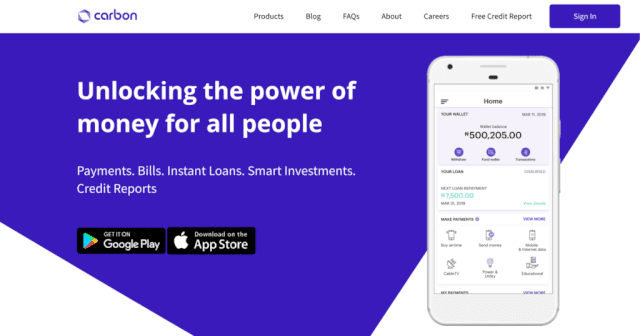Federal Government Student Loan – How To Apply For A Student Loan By The Federal Government In Nigeria?
Hey there! If you’re looking to finance your education in Nigeria but worried about the costs, you’re in the right place. Applying for a Federal Government Student Loan might just be the solution you need. Let’s dive into everything you need to know about how to apply for this loan, the eligibility criteria, and some tips to make the process smoother. By the end of this article, you’ll have a clear roadmap to securing the funds for your education. Let’s get started!
Why Consider a Federal Government Student Loan?
Financing your education can be daunting, especially with rising tuition fees. The Federal Government Student Loan is designed to ease this burden for Nigerian students. It’s a low-interest loan aimed at helping students from low-income families afford higher education. Plus, it’s a great way to invest in your future without the immediate financial strain.
Pursuing higher education can be a significant financial burden for many families in Nigeria. Here are some compelling reasons why a Federal Government Student Loan could be a great option:
1. Low-Interest Rates
One of the most attractive features of the Federal Government Student Loan is its low interest rate. Unlike private loans that often come with high-interest rates, these loans are subsidized by the government, making them more affordable in the long run.
2. Accessible to Low-Income Families
These loans are specifically designed to assist students from low-income families. This means that if your family’s income falls below a certain threshold, you are more likely to be eligible, making higher education more accessible.
3. Deferred Repayment
With the Federal Government Student Loan, you typically don’t have to start repaying until after you’ve graduated. This grace period allows you to focus on your studies without the immediate pressure of loan repayment.
4. No Need for a Cosigner
Unlike many private loans that require a cosigner, Federal Government Student Loans generally do not. This can simplify the application process and make it easier for students who may not have access to a cosigner.
5. Supporting Education
Investing in education is one of the best ways to secure a bright future. By taking advantage of the Federal Government Student Loan, you are investing in yourself and your potential. This financial support can help you focus on your studies and achieve your academic goals without the constant worry of financial strain.
6. Building Credit History
Repaying your student loan on time can help you build a positive credit history. This is important for your future financial endeavors, such as applying for a mortgage or other loans.
7. Flexible Repayment Options
The Federal Government offers various repayment plans, allowing you to choose one that best fits your financial situation after graduation. Options may include income-driven repayment plans, which adjust your monthly payments based on your income level.
8. Potential for Loan Forgiveness
In some cases, portions of your loan may be forgiven if you meet certain criteria, such as working in specific public service roles. This can significantly reduce the overall amount you need to repay.
9. Encouraging Academic Success
Knowing that you have financial support can alleviate stress and allow you to focus more on your studies. This can lead to better academic performance and a more fulfilling educational experience.
10. Promoting Equal Opportunities
By providing financial support to those who need it most, the Federal Government Student Loan program helps promote equal educational opportunities. This ensures that talented and determined students, regardless of their financial background, can pursue their academic dreams.
Eligibility Criteria for Federal Government Student Loan
Before diving into the application process, it’s crucial to understand the eligibility criteria for the Federal Government Student Loan in Nigeria. Meeting these criteria ensures that you qualify for the loan and can benefit from the financial support it offers. Here’s what you need to know:
1. Nigerian Citizenship
To qualify for the Federal Government Student Loan, you must be a Nigerian citizen. Proof of citizenship may include your national identity card, international passport, or any other official document that verifies your status as a citizen of Nigeria.
2. Admission into an Accredited Institution
You must have gained admission into a recognized and accredited higher education institution in Nigeria. This includes universities, polytechnics, and colleges of education. Admission letters from these institutions serve as proof of your enrollment.
3. Financial Need
The loan is designed to support students from low-income families. To demonstrate financial need, you may be required to provide financial statements, tax returns, or other documents that reflect your family’s income. The government sets a specific income threshold that applicants must fall below to qualify.
4. Good Academic Standing
Maintaining a good academic record is essential for eligibility. Some loans require a minimum GPA or other academic performance indicators. Ensure you keep up with your studies and maintain the required grades to stay eligible.
5. Guarantor Requirement
Applicants usually need to have a guarantor. The guarantor could be a government official, a recognized authority, or someone with a stable income who can vouch for your ability to repay the loan. The guarantor must complete a form and provide necessary identification and financial documents.
6. Age Limit
There may be an age limit for applicants, often set at a maximum of 30 years old for undergraduate students. Make sure you check the specific age requirements for the loan program you’re applying for.
7. Course of Study
Some loans may be limited to students pursuing specific courses or fields of study, particularly those considered critical to national development. Check if your course of study is covered under the loan program.
8. Non-Default on Previous Loans
If you have previously taken any loans from the government or other financial institutions, you must not be in default. A clean credit record increases your chances of approval.
9. Parental/Guardian Consent
For students under 18, parental or guardian consent is required. This ensures that your family is aware of and supports your decision to take out a student loan.
How to Apply for a Student Loan by the Federal Government in Nigeria: A Step-by-Step Guide
Applying for a Federal Government Student Loan in Nigeria might seem overwhelming, but breaking it down into manageable steps can simplify the process. Here’s a comprehensive guide to help you through each stage of the application:
1. Access the Loan Application Portal
The first step is to visit the National Education Loan Fund (NELF) website at https://nelf.gov.ng. This is the official portal for student loan applications. Make sure you have a stable internet connection to avoid interruptions during the process.
2. Create or Log Into Your Account
If you’re a new user, you’ll need to create an account. Here’s how:
- Click on the “Create Account” button.
- Fill in your personal details, including your name, email address, and phone number.
- Create a secure password and verify your email address.
- If you already have an account, simply log in using your email and password.
3. Prepare Necessary Documents
Having all the required documents ready will make the application process smoother. Commonly required documents include:
- Admission Letter: Proof of admission into an accredited institution.
- Academic Transcripts: Your previous academic records.
- Proof of Citizenship: National ID, international passport, or voter’s card.
- Financial Statements: Documents showing your family’s income, such as tax returns or pay slips.
- Guarantor’s Form: A completed guarantor’s form with the necessary identification and financial documents of your guarantor.
4. Complete the Loan Application Form
Once logged in, navigate to the loan application section. Carefully fill out the form with accurate information. Here’s what you typically need to provide:
- Personal Information: Full name, date of birth, contact details.
- Educational Details: Name of institution, course of study, and year of admission.
- Financial Information: Details about your family’s income and financial status.
- Guarantor Information: Details of your guarantor, including their occupation and contact information.
5. Submit the Application
Before submitting, double-check all the information you’ve entered. Ensure there are no errors or missing details. Once you’re confident everything is correct:
- Click the “Submit” button.
- You’ll receive a confirmation email with a reference number. Keep this safe for future correspondence.
6. Await Approval
After submission, your application will be reviewed by the relevant authorities. This review process can take a few weeks, so be patient. During this period, you might be contacted for additional information or clarification.
7. Follow Up on Your Application
If you haven’t heard back after a reasonable period, it’s okay to follow up. Use the contact details provided on the NELF website to inquire about the status of your application. Be polite and provide your reference number when making inquiries.
8. Receive Approval and Disbursement
If your application is approved, you’ll receive an approval notification via email. This will include details about the loan amount, interest rate, and repayment terms. The funds will then be disbursed to your institution’s account or directly to you, depending on the loan agreement.
How Much is the Student Loan in Nigeria?
The Federal Government Student Loan in Nigeria is designed to provide financial assistance to students pursuing higher education. The amount you can receive from this loan depends on several factors, including the specific needs of the student, the cost of their education, and government guidelines. Here’s a breakdown of what you can typically expect:
1. Loan Amount Range
The amount of the Federal Government Student Loan can vary significantly. Generally, the loan amount ranges from ₦100,000 to ₦500,000 per academic year. This range is intended to cover a substantial portion of tuition fees, accommodation, and other essential expenses.
2. Determining Factors
Several factors determine the exact loan amount you may be eligible for:
- Tuition Fees: The primary determinant of the loan amount is the cost of tuition at your chosen institution. Higher tuition fees may justify a larger loan amount.
- Course of Study: Some courses, especially those in fields like medicine or engineering, may attract higher loan amounts due to their higher tuition fees and associated costs.
- Financial Need: Your family’s financial situation plays a crucial role. Students from lower-income families are more likely to receive higher loan amounts to cover their educational expenses.
- Other Costs: The loan may also consider other educational costs such as accommodation, textbooks, and transportation.
3. Annual Limits
There is usually a cap on the maximum amount you can borrow in a single academic year. This cap is put in place to ensure that the funds are distributed fairly among eligible students. The exact cap can vary, but as mentioned, it typically does not exceed ₦500,000 per year.
4. Repayment Terms
While understanding the loan amount is important, it’s also crucial to be aware of the repayment terms. These loans come with low-interest rates and favorable repayment plans, often with a grace period after graduation before repayments begin.
5. Application and Approval
When you apply for the loan, you will need to provide details about your educational expenses. The approving body will assess your application and determine the appropriate loan amount based on the provided information and the outlined criteria.
Is the Student Loan Portal Open?
Keeping up-to-date with the availability of the Federal Government Student Loan portal is crucial for timely application and securing financial assistance for your studies. Here’s what you need to know about the status of the student loan portal:
Current Status
As of July 2024, the Federal Government Student Loan portal is open and actively accepting applications. The portal, managed by the National Education Loan Fund (NELF), typically opens for new applications at the beginning of the academic year and remains open for a specific period to accommodate all prospective applicants.
How to Check the Portal Status
Visit the Official NELF Website:
The most reliable source for checking the status of the student loan portal is the official NELF website: https://nelf.gov.ng.
Look for Announcements:
The homepage usually features announcements regarding the opening and closing dates of the loan application period.
Contact NELF Support:
If you are unsure about the status or have specific questions, you can contact NELF support through the contact details provided on their website.
Important Dates
- Application Period: The loan application portal generally opens in the first quarter of the academic year and stays open for several months. For the 2024/2025 academic session, applications began in early June and are expected to remain open until September.
- Review Period: Once the application period closes, the review and approval process begins, which can take a few weeks.
Steps to Apply
If the portal is open, follow these steps to apply:
- Access the Portal: Go to https://nelf.gov.ng.
- Create or Log into Your Account: New users need to create an account, while returning users can log in.
- Complete the Application Form: Fill out the application form with all necessary details and upload the required documents.
- Submit Your Application: Ensure all information is accurate before submitting.
- Check for Updates: Regularly check your email and the portal for updates on your application status.
Real-Life Example
To better understand the process and how it works in a real-life scenario, let’s look at the story of Kemi, a diligent student who successfully navigated the application for the Federal Government Student Loan.
Kemi’s Journey: From Application to Approval
Background
Kemi is a second-year student at the University of Ibadan, studying Computer Science. Despite her academic excellence, her family faced financial challenges, making it difficult to cover her tuition fees and other educational expenses. Determined to continue her studies, Kemi decided to apply for the Federal Government Student Loan.
Step 1: Preparation
Document Gathering: Kemi knew that thorough preparation was essential. She gathered all necessary documents, including her admission letter, academic transcripts, proof of citizenship, and her father’s financial statements. She also secured a guarantor—her uncle, who is a civil servant.
Research: Kemi visited the NELF website to familiarize herself with the loan application process. She carefully read through the eligibility criteria and the required documents to ensure she met all conditions.
Step 2: Accessing the Portal
In early June 2024, Kemi accessed the loan application portal at https://nelf.gov.ng. She found the portal to be user-friendly and straightforward.
Step 3: Creating an Account
Kemi created a new account by clicking on the “Create Account” button. She filled in her personal details, created a secure password, and verified her email address. With her account set up, she was ready to start the application.
Step 4: Completing the Application Form
Personal Information: Kemi entered her full name, date of birth, and contact details.
Educational Details: She provided details about her course of study, the name of her institution, and her year of admission.
Financial Information: Kemi accurately reported her family’s financial situation, including her father’s income and financial statements.
Guarantor Information: She filled in her uncle’s details, including his occupation and contact information, and uploaded the completed guarantor’s form.
Step 5: Submission
After double-checking all the information, Kemi submitted her application. She received a confirmation email with a reference number, which she saved for future correspondence.
Step 6: Follow-Up
Kemi understood that the review process could take some time. After three weeks of not hearing back, she decided to follow up. She used the contact details provided on the NELF website and called the support center. She politely inquired about the status of her application, providing her reference number for easy tracking.
Step 7: Approval and Disbursement
Two weeks after her follow-up call, Kemi received an email notifying her that her application had been approved. The email included details about the loan amount, interest rate, and repayment terms. She was approved for a loan amount of ₦350,000, which covered her tuition fees and part of her accommodation costs. The funds were disbursed directly to the University of Ibadan’s account.
Outcome
With the financial burden significantly reduced, Kemi was able to focus on her studies. She maintained her excellent academic performance and graduated with honors. The student loan not only provided her with immediate financial relief but also set her on a path to a successful career in technology.
Frequently Asked Questions (FAQs)
What is the interest rate on the Federal Government Student Loan?
The interest rate is generally low compared to private loans, making it easier to manage post-graduation.
How long does the application process take?
It typically takes a few weeks to process the application, but it can vary depending on the volume of applications.
Can I apply for the loan if I’m studying abroad?
No, this loan is specifically for students attending accredited institutions within Nigeria.
What happens if I default on my loan?
Defaulting on your loan can have serious consequences, including damage to your credit score and legal action. It’s crucial to manage your finances and ensure timely repayments.
Is there a grace period before I start repaying the loan?
Yes, there is usually a grace period after graduation before you need to start repaying the loan. This allows you time to find a job and settle into your career.
Conclusion
Applying for a Federal Government Student Loan in Nigeria can be a lifeline for many students facing financial challenges. By following the steps outlined in this guide, you can navigate the application process with ease. Remember, education is an investment in your future, and securing this loan can make that investment more accessible.
Ready to take the next step? Head over to the NELF website and start your application today. Your future self will thank you!







